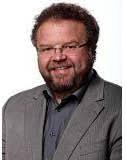
Prof. Dr. Andreas Hornung CEng FIChemE FRSC is director of the European Biomass Research Institute (EBRI) in Birmingham, UK since 2007 and further heads the Fraunhofer UMSICHT Institute branch Sulzbach-Rosenberg, Germany since 2013. In January 2013, he was appointed as a member of the International Biochar Initiative IBI board.
Fraunhofer UMSICHT is part of the Fraunhofer research and development organization, which includes 66 institutes and employs over 22 000 staff members, of which the majority are graduated scientists and engineers. The annual research budget of 1.9 billion € and it’s focus on applied research, makes it one of the leading R&D organizations in Europe.
***
With its decision to opt-out of nuclear power, by 2022, Germany, as one of the key industrial players in the European Union and second largest exporting country in the world, has dedicated itself to becoming a 80% renewable energy nation by 2050. The talk by Prof. Andreas Hornung will highlight the German political framework in place which will support this transition and discuss some of the crucial issues which will have to be overcome.
The transition from centralized energy production to smaller regionally dispersed renewable sites not only necessitates a major rethink in energy distribution logistics, but also the integration of innovative energy storage systems, guaranteeing a secure energy availability, also from fluctuating energy sources. Using peak electricity in combination with residual biomass waste streams, Fraunhofer UMSICHTs new intermediate pyrolysis technique, which is a part of their biobattery flagship-concept, offers both unique and attractive opportunities to combine both electricity and material production from renewable sources. Germany’s already existent and grid-integrated 7500 agricultural biogas-plants offer a unique starting point for the integration of this new technology, which has already begun.

